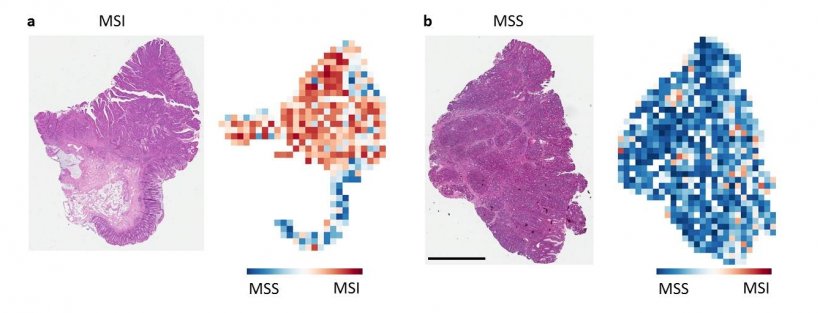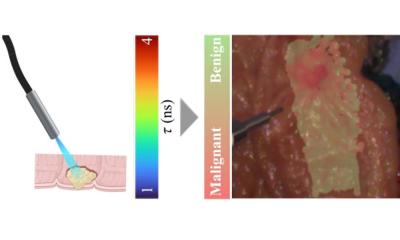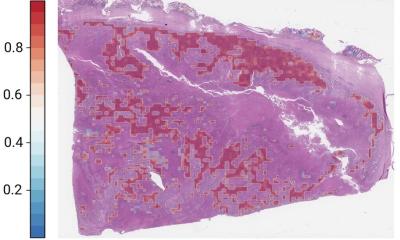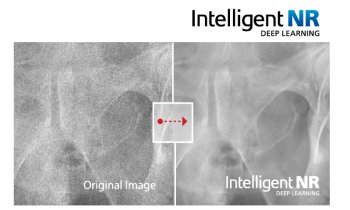
Source: Jakob Nikolas Kather
News • Microsatellites
Stomach and colorectal cancer: AI identifyies patients for immunotherapy
Changes in certain sections of the genetic material of cancer cells, so-called microsatellites, can provide an important indication of whether immunotherapy may be successful in a patient with stomach or colorectal cancer.
Scientists from Uniklinik RWTH Aachen, the German Cancer Research Center (DKFZ), the German Cancer Consortium (DKTK) and the National Center for Tumor Diseases Heidelberg (NCT) have developed an adaptive algorithm that can predict instability in microsatellites based directly on images of tissue samples. This could help to potentially identify patients at an early stage who could benefit from immunotherapy. The research results were published in the journal Nature Medicine.
With our approach, we have the potential to test any patient with colorectal cancer for MSI automatically and cost-effectively, which allows us to provide the option of immunotherapy to a larger group of colorectal cancer patients
Jakob Nikolas Kather
Only a small number of patients with stomach or colorectal cancer respond to immunotherapy. Some tumors lead to changes in the genetic material, and this can cause mutations in the sections of the genome, referred to as “microsatellites”, that are frequently replicated. This microsatellite instability (MSI) is a characteristic for distinguishing between different cancers of the gastrointestinal tract and determines whether patients with these diseases are able to respond well to immunotherapy with checkpoint inhibitors. Detecting these properties usually requires a genetic or immunohistochemical test, which requires additional costs and is not always automatically performed for every patient in clinical practice.
The scientists in Aachen and Heidelberg, in collaboration with international colleagues, showed that a computer-aided adaptable algorithm, based on the concept of “deep learning”, enables MSI to be directly diagnosed based on routinely available images of tissue samples without the need for additional laboratory tests. “With our approach, we have the potential to test any patient with colorectal cancer for MSI automatically and cost-effectively, which allows us to provide the option of immunotherapy to a larger group of colorectal cancer patients,” says Jakob Nikolas Kather, physician and scientist at the Clinic for Gastroenterology, Metabolic Diseases and Internal Intensive Care (Medical Clinic III) at Uniklinik RWTH Aachen and member of staff at DKFZ and NCT Heidelberg. “This makes it possible to identify patients who may otherwise never be considered for immunotherapy. However, this approach must be reviewed in prospective studies,” adds Dirk Jäger, Medical and Executive Director of the Department of Medical Oncology at NCT Heidelberg.
Source: NCT Heidelberg
07.06.2019










